Ditapis dengan
E-book Denken over geloven : Van moderne zekerheid tot agnostische terughoude…
How to think philosophically about religion? The separation of church and state takes form in the nineteenth century. In public universities in the Netherlands, systematic, church-related theology is replaced by philosophy of religion. As a window on academic thinking about faith, Willem B. Drees, Leiden University's last professor of philosophy of religion, reads the work of his predecessors. …
- Edisi
- -
- ISBN/ISSN
- 9789464561999
- Deskripsi Fisik
- 232 hlm
- Judul Seri
- -
- No. Panggil
- 210.1 DRE d
E-book Love in the Time of Scholarship : The Bhagavata Purana in Indian Intel…
If you walk into the Ra?jara?j??varan ?iva temple in Ta?ipparamba, in the Ka???r district of northern Kerala, you will see many standard features: lush green lawns, old stone architecture, the occasional elephant munching on grass, low tiled roofs housing an array of deities that surround the main shrine. Having paid your respects to the various spirit…
- Edisi
- -
- ISBN/ISSN
- 9780197776636
- Deskripsi Fisik
- 257 hlm
- Judul Seri
- -
- No. Panggil
- 210.1 VEN l
E-book Cow Care in Hindu Animal Ethics
Cows—certain types ofbovinae—can evoke strong emotions among peo-ple, different emotions rooted in different worldviews. One worldview,which is arguably a galaxy of worldviews emerging over centuries in India,has come to be called “Hindu.” Some people who identify themselvesas Hindus have strong feelings about cows—feelings that tie into theirsense of conviction that cows are not just…
- Edisi
- -
- ISBN/ISSN
- 9783030284084
- Deskripsi Fisik
- 289 hlm
- Judul Seri
- -
- No. Panggil
- 210.1 VAL c
E-book Transcendent God, Rational World: A Maturidi Theology
Ramon Harvey revisits the Muslim theologian Ab? Man??r al-M?tur?d? (d. 333/944) from Samarqand and puts his system, and that of the M?tur?d? school, into lively dialogue with modern thought.Combining rigorous study of Arabic M?tur?d? texts with insights from Husserl’s phenomenology and analytic theology, Harvey explores themes from epistemology and metaphysics to the nature of God and specifi…
- Edisi
- -
- ISBN/ISSN
- 9781474451666
- Deskripsi Fisik
- 330 halaman, ilus.
- Judul Seri
- -
- No. Panggil
- 210.1 HAR t
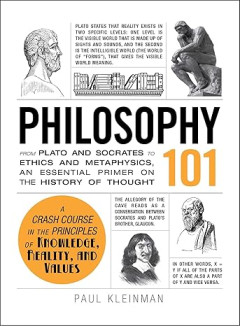
E-book Philosophy 101: From Plato and Socrates to Ethics and Metaphysics, an …
Too often, textbooks turn the noteworthy theories, principles, and figures of philosophy into tedious discourse that even Plato would reject. Philosophy 101 cuts out the boring details and exhausting philosophical methodology, and instead, gives you a lesson in philosophy that keeps you engaged as you explore the fascinating history of human thought and inquisition. From Aristotle and Heideg…
- Edisi
- -
- ISBN/ISSN
- 9781440567674
- Deskripsi Fisik
- 364 halaman, ilus.
- Judul Seri
- -
- No. Panggil
- 101 KLE p
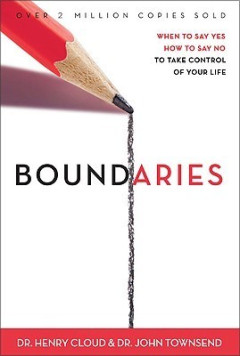
E-book Boundaries: When to Say Yes, How to Say No to Take Control of Your Life
Having clear boundaries is essential to a healthy, balanced lifestyle. A boundary is a personal property line that marks those things for which we are responsible. In other words, boundaries define who we are and who we are not. Boundaries impact all areas of our lives: Physical boundaries help us determine who may touch us and under what circumstances -- Mental boundaries give us the freedom t…
- Edisi
- -
- ISBN/ISSN
- 9780310243750
- Deskripsi Fisik
- 357 halaman
- Judul Seri
- -
- No. Panggil
- 102 CLO b
E-book Reassembling Democracy : Ritual as Cultural Resource
Diverse processes of democratic participation – and exclusion – are braided with or propelled onwards by ritual acts and complexes. This volume is the result of collaborations and conversations between international researchers who have focused on the employment and deployment of those cultural resources identifiable as ‘ritual’ as pa…
- Edisi
- -
- ISBN/ISSN
- 9781350123038
- Deskripsi Fisik
- 265 hlm
- Judul Seri
- -
- No. Panggil
- 210.1 CZA r
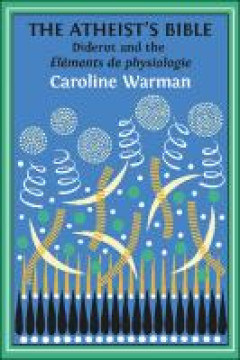
E-book The Atheist's Bible: Diderot's 'Éléments de physiologie'
"‘Love is harder to explain than hunger, for a piece of fruit does not feel the desire to be eaten’: Denis Diderot’s Éléments de physiologie presents a world in flux, turning on the relationship between man, matter and mind. In this late work, Diderot delves playfully into the relationship between bodily sensation, emotion and perception, and asks his readers what it means to be human i…
- Edisi
- -
- ISBN/ISSN
- 9781783748969
- Deskripsi Fisik
- 445 halaman
- Judul Seri
- -
- No. Panggil
- 101 WAR t
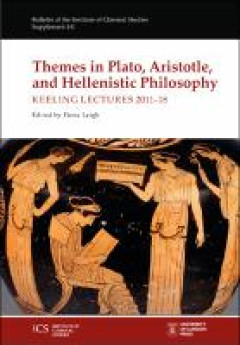
E-book Themes in Plato, Aristotle, and Hellenistic Philosophy
The present volume collects together papers based on the annual Keeling Memorial Lecture in ancient philosophy given at University College London, over 2011-18 (and one from 2004, previously unpublished). It contains contributions to theoretical as well as practical ancient philosophy, and in some cases, to both. Susanne Bobzien argues that Frege plagiarised the Stoics in respect of logic, Gail…
- Edisi
- -
- ISBN/ISSN
- 9781905670932
- Deskripsi Fisik
- 262 halaman
- Judul Seri
- -
- No. Panggil
- 101 LEI t
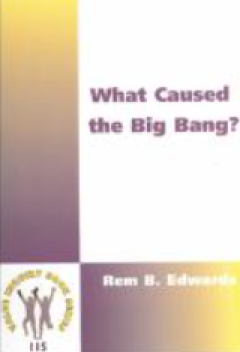
E-book What Caused the Big Bang?
Greek philosophers assumed that the world, the universe, the cosmos, or nature as a whole, existed in some form from eternity, that is, infinitely into the past, and that the basic stuff of the universe is uncreated, everlasting, self-sufficient, and indestructible. The official Christian view, by contrast, was and is that the world was created by God out ofnothing (ex nihi/o) at some point in …
- Edisi
- -
- ISBN/ISSN
- 9789004496033
- Deskripsi Fisik
- 445 hlm
- Judul Seri
- -
- No. Panggil
- 210.1 EDW w
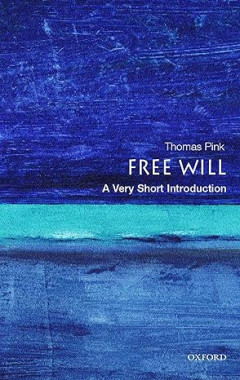
E-book Free Will: A Very Short Introduction
Every day we seem to make and act upon all kinds of choices: some trivial, others so consequential that they change the course of one's life, or even the course of history. But are these choices really free, or are we compelled to act the way we do by factors beyond our control? Is the feeling that we could have made different decisions just an illusion? And if our choices are not free, is it l…
- Edisi
- -
- ISBN/ISSN
- 9780192853585
- Deskripsi Fisik
- 143 halaman
- Judul Seri
- -
- No. Panggil
- 101 PIN f

E-book Genius: A Very Short Introduction
Homer, Leonardo da Vinci, Mozart, Shakespeare, and Tolstoy; Curie, Darwin, Einstein, Galileo, and Newton. What do these world-famous artists and scientists have in common?- apart from the fact that their achievements predate our own time by a century or more. Most of us would probably answer: all ten possessed something we call genius, which in each instance permanently changed the way that hum…
- Edisi
- -
- ISBN/ISSN
- 9780199594405
- Deskripsi Fisik
- 285 halaman
- Judul Seri
- -
- No. Panggil
- 101 ROB g
E-book Filsafat Ilmu: Ontologis, Epistemologis, dan Aksiologis
- Edisi
- -
- ISBN/ISSN
- -
- Deskripsi Fisik
- 400 halaman
- Judul Seri
- -
- No. Panggil
- 101 SAD f
- Edisi
- -
- ISBN/ISSN
- -
- Deskripsi Fisik
- 400 halaman
- Judul Seri
- -
- No. Panggil
- 101 SAD f
E-book Cosmic Christology in Paul and the Pauline School : Colossians and Eph…
eflections on God, Christ and cosmos in the writings of Paul and the Pauline School show that these authors were familiar with important notions from Graeco-Roman cosmology and theology. George van Kooten comes to the conclusion that they might even have adopted a way of thinking in which Judaism and Graeco-Roman cosmology were forged into a new synthesis, and Christ was viewed as a cosmic god.…
- Edisi
- -
- ISBN/ISSN
- 9783161571909
- Deskripsi Fisik
- 363 hlm
- Judul Seri
- -
- No. Panggil
- 210.1 VAN c
E-book The Legacies of Albert Schweitzer Reconsidered
There can be no ‘neutral’ Schweitzer interpretation. Schweitzer’s thoughts changed over the years, as is the case with most human beings. He was too considered to make one-sided statements. Those that may, at first sight, seem so are qualified by context. He contextualised and balanced such statements with self-critique and an appeal to our conscience.African …
- Edisi
- -
- ISBN/ISSN
- 9781928396048
- Deskripsi Fisik
- 386 hlm
- Judul Seri
- -
- No. Panggil
- 210.1 AHI t
E-book Introduction to Philosophy
For most college students, an Introduction to Philosophy course is their first encounter with the study of philosophy. Unlike most of your other courses, philosophy is not something usually covered in high school. Yet you are probably familiar with the term philosophy and may have some preconceived notion about what philosophy is and what philosophers do. Perhaps you have stayed up late at nig…
- Edisi
- -
- ISBN/ISSN
- 9781951693596
- Deskripsi Fisik
- 419 hlm
- Judul Seri
- -
- No. Panggil
- 101 SMI i
E-book An Introduction to Philosophy
The goal of this text is to present philosophy to newcomers as a living discipline with historical roots. While a few early chapters are historically organized, my goal in the historical chapters is to trace a developmental progression of thought that introduces basic philosophical methods and frames issues that remain relevant today. Later chapters are topically organized. These include philos…
- Edisi
- -
- ISBN/ISSN
- 9781551954653
- Deskripsi Fisik
- 130 hlm
- Judul Seri
- -
- No. Panggil
- 101 PAY a
 Karya Umum
Karya Umum  Filsafat
Filsafat  Agama
Agama  Ilmu-ilmu Sosial
Ilmu-ilmu Sosial  Bahasa
Bahasa  Ilmu-ilmu Murni
Ilmu-ilmu Murni  Ilmu-ilmu Terapan
Ilmu-ilmu Terapan  Kesenian, Hiburan, dan Olahraga
Kesenian, Hiburan, dan Olahraga  Kesusastraan
Kesusastraan  Geografi dan Sejarah
Geografi dan Sejarah